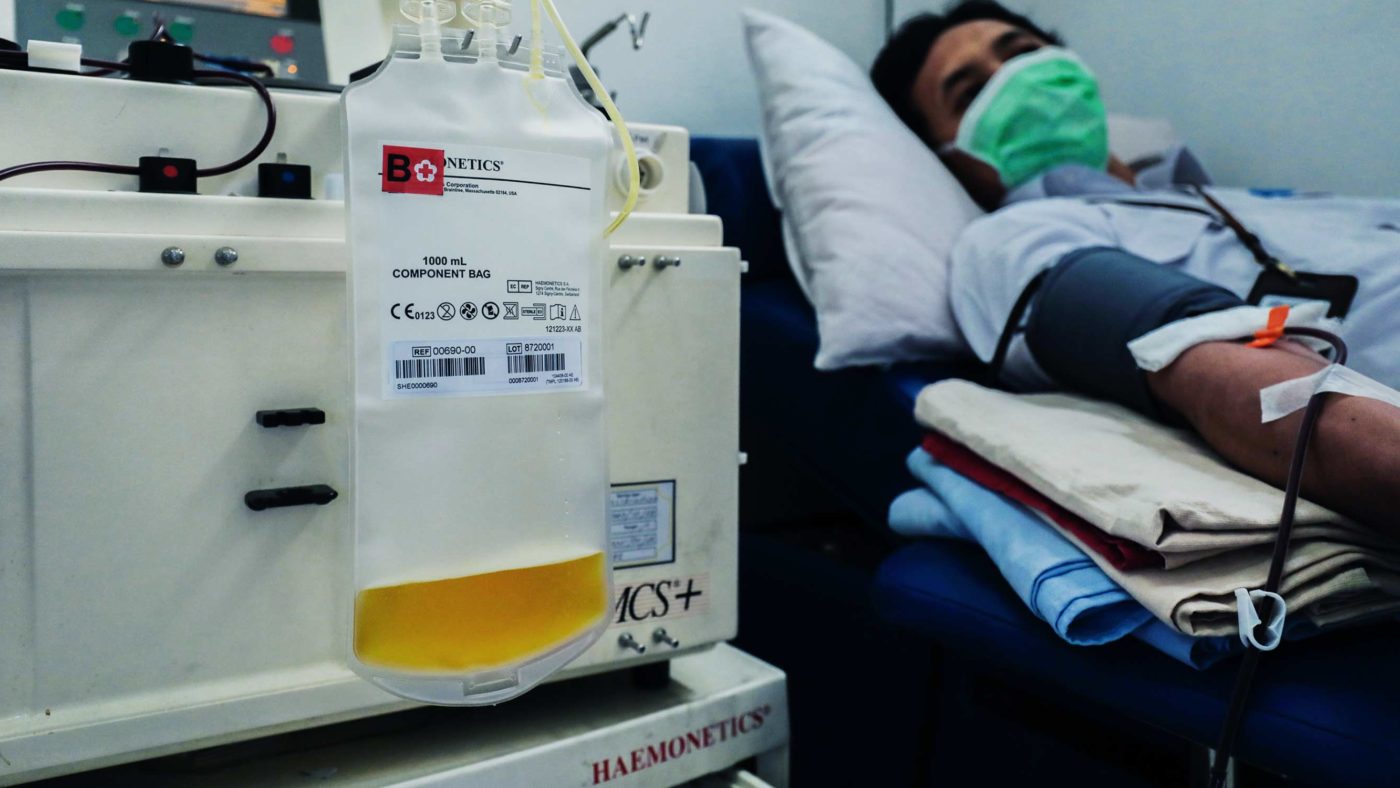The United Kingdom has lifted the ban on collecting blood plasma for further manufacture into plasma-derived medicinal therapies. Now, in order to ensure security of supply from domestic plasma donors, the UK should lift the ban on compensating Brits for giving plasma.
Plasma-derived medicinal therapies are essential, often life-saving, medicines made from the straw-coloured part of our blood that contains proteins like immune globulin and albumin. Thousands of patients in the UK rely on these therapies – people with immune deficiencies, autoimmune diseases, rare blood disorders, and a growing list of neurological ailments like multifocal motor neuropathy.
After an outbreak of Creutzfeld-Jakob Disease, the UK government decided to stop the collection of plasma for plasma therapies in 1998. The concern was that this disease might have been transmissible through plasma therapies.
Recent studies have confirmed what experts have suspected all along – the likelihood of transmitting CJD through a plasma therapy using modern testing and manufacturing techniques, including pathogen inactivation and removal, is vanishingly small. This is why patient groups, along with thinktanks like the Adam Smith Institute, have been calling for an end to the ban on using British plasma for British plasma therapies.
Armed with 20-plus years of evidence, and growing concerns about the UK continuing to have uninterrupted access to these therapies, the Government has lifted its ban on using British plasma for British plasma therapies.
The more-than 20 years of relying on imported plasma therapies should be more than sufficient evidence to lift a different ban — the ban on paying Brits for plasma donations.
The primary motivation for banning paying plasma donors was a concern about safety. But every single one of the millions of plasma therapies used by thousands of British patients for more than 20 years were made from the plasma of paid donors. Overwhelmingly, that plasma came from Americans who were paid to give plasma. This is a huge global industry worth hundreds of millions of pounds.
The real safety concern is security of supply. There have been shortages of immunoglobulin in the past, devastating to patients, and the pandemic has raised concerns about more devastating shortages soon. There has been a 20-25% fall in plasma donations in the United States.
The US has not only supplied basically all of the UK’s plasma therapies, it is responsible for a staggering seven of every 10 plasma therapies for the entire world. This includes more than four of every five plasma therapies used in my home country of Canada, and more than half of the plasma therapies used by Australians.
As Health Minister Lord Bethell has said, lifting the ban on using British plasma for plasma therapies would “also help England become self-sufficient and we will not have to rely only on imports from other countries”.
But just giving people a biscuit and a cup of tea for donating plasma – a two-hour process that involves 45 minutes sitting in a chair with a needle in your arm – is not enough. Apart from the US, only Germany, Austria, Hungary, and the Czech Republic – the only four countries that permit commercial plasma collections using compensation – are self-sufficient. The rest of the world pays Americans to roll up their sleeves.
For self-sufficiency, it’s going to take pounds, not biscuits.
But maybe you think the ban on compensation is at least penny wise, even if it is pound foolish. Not so. The model of paying for plasma is at least two to four times less costly than the model of giving people biscuits for plasma. The most substantial costs are infrastructure and employee costs, which are roughly the same for both the NHS Blood and Transplant as well as any commercial plasma collection company. The difference is volume – centres that compensate donors collect significantly more plasma, at least two to four times as much, than the ones that hand out biscuits.
We now have more than 20 years worth of evidence not just in the UK, but the world over. If we want to ensure security of supply of safe and effective plasma therapies for every patient that needs them, we need to stop thinking we can get enough plasma in exchange for biscuits and bloody well pay them.
Click here to subscribe to our daily briefing – the best pieces from CapX and across the web.
CapX depends on the generosity of its readers. If you value what we do, please consider making a donation.


